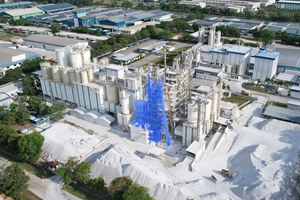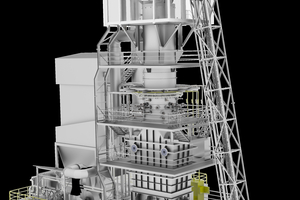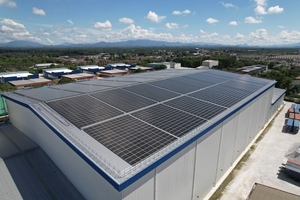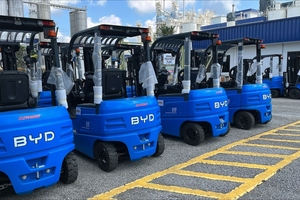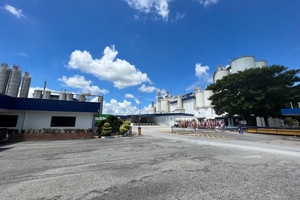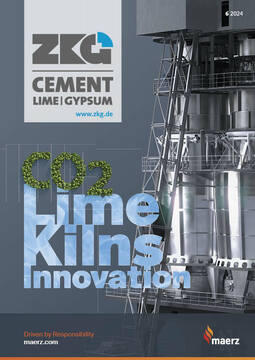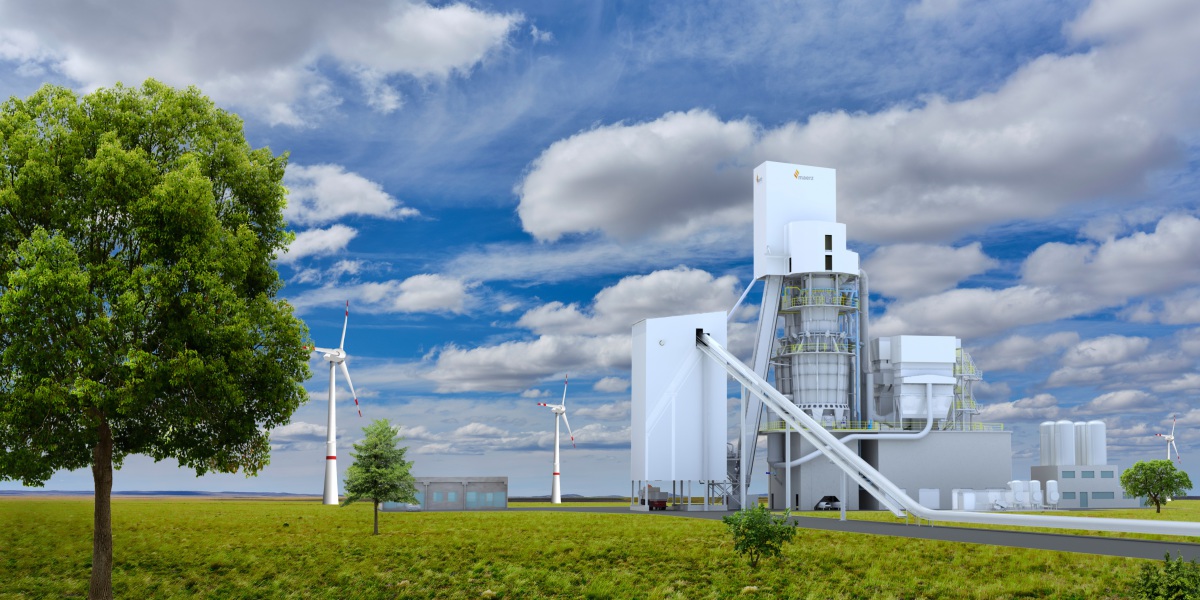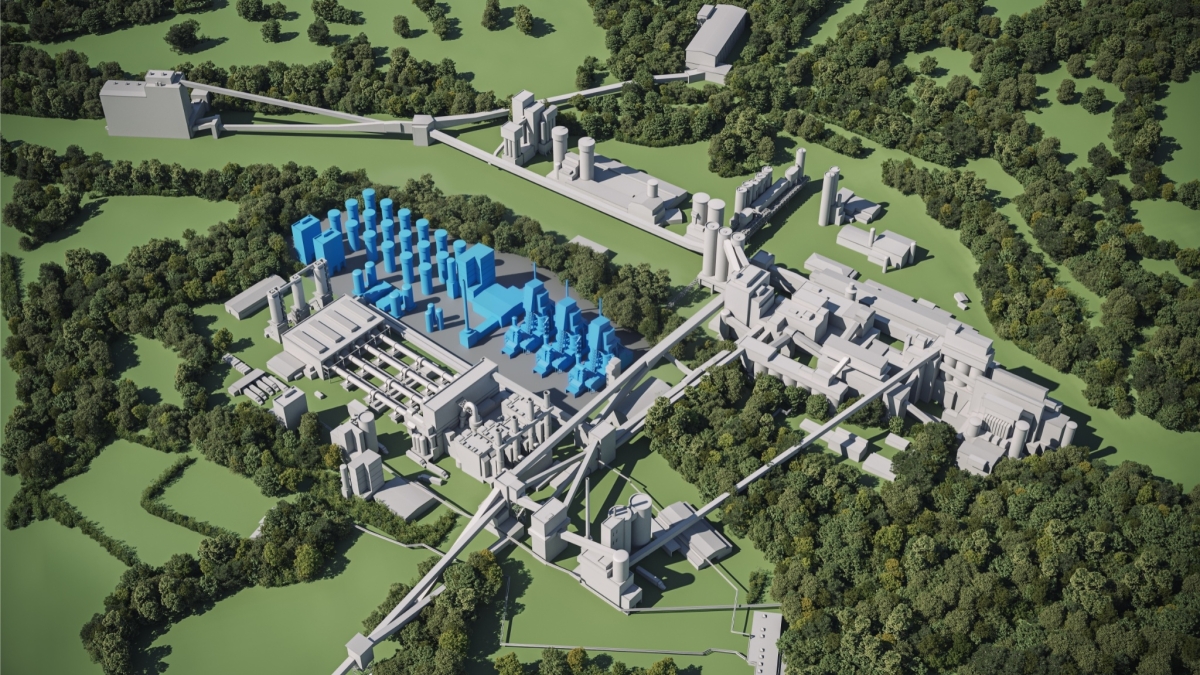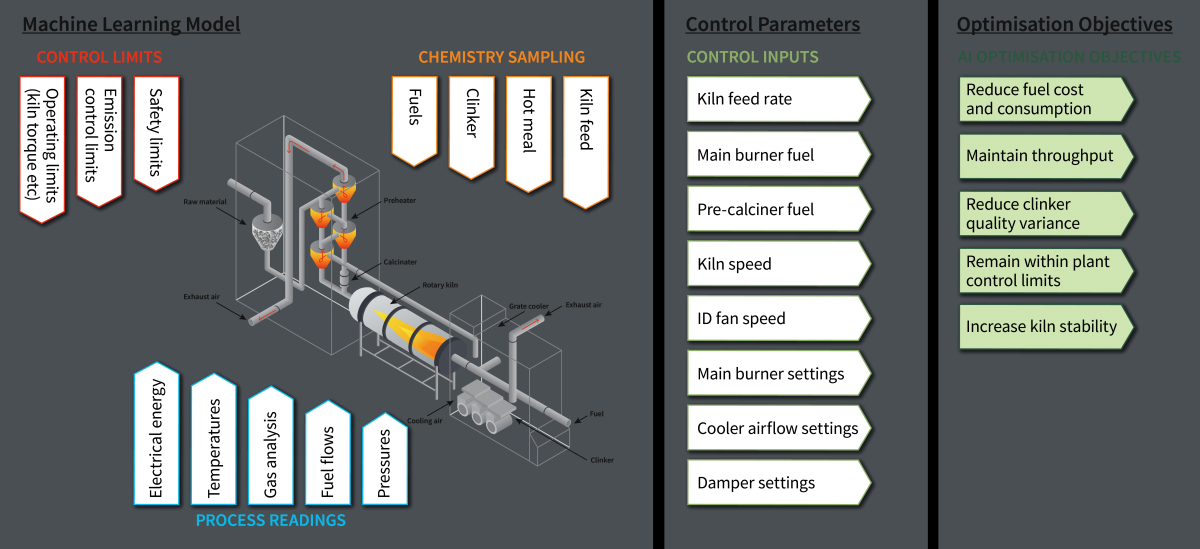Schaefer Kalk Malaysia’s goal of decarbonisation relies on Maerz EcoKiln® technology
Schaefer Kalk has long been a significant player in the lime industry, renowned for its quality products and innovative processes. As the global push for sustainability intensifies, Schaefer Kalk is taking strategic steps to align its operations with the growing demand for environmentally responsible practices. This article examines Schaefer Kalk’s commitment to decarbonisation and the ways in which the company is positioning itself at the forefront of sustainable development in the lime sector.
Decarbonisation is the process of reducing carbon dioxide (CO2) emissions through various measures, including energy efficiency improvements, fuel switching, and the adoption of low-carbon technologies. For industries that are inherently carbon-intensive, such as lime processing, decarbonisation is critical not only to mitigating climate change but also to ensuring long-term business viability. Governments and consumers are increasingly demanding sustainable practices, and companies that fail to adapt risk losing their competitive edge.
Decarbonisation strategies
1. Energy efficiency and electrification: Improving energy efficiency is one of the most effective ways to reduce emissions. This can include modernising equipment and processes to use less energy while maintaining the same level of performance. Electrification, especially when paired with renewable energy sources, can further reduce the carbon footprint.
2. Fuel switching: Transitioning from fossil fuels to renewable energy sources is another crucial strategy for decarbonisation. This includes replacing coal, oil and natural gas with biomass, biogas and hydrogen-based fuels. For the lime industry, switching to these environmentally friendly fuels can significantly reduce CO2 emissions from the calcination process.
3. Carbon capture and storage (CCS): CCS technologies capture CO2 emissions before they enter the atmosphere and store them underground or use them in various industrial applications (CCU). This technology is especially important for industries like lime processing, where it is difficult to eliminate emissions completely. CCS can help achieve net-zero emissions by offsetting the CO2 from lime production.
4. Sustainable partnerships: Collaborating with government agencies, industry peers and research institutions is essential to foster innovation and advance the adoption of sustainable practices. These partnerships can help develop and implement effective decarbonisation solutions, making it easier for companies to achieve their sustainability goals.
Schaefer Kalk’s global decarbonisation efforts are based on a commitment to reduce CO2 emissions and promote sustainability in the lime industry. In Asia, Schaefer Kalk Malaysia has been at the forefront and has taken significant steps to achieve these goals, including the introduction of advanced kiln technologies and implementation of various energy efficiency measures, such as:
1. Conversion to electrically powered forklifts: Schaefer Kalk Malaysia has converted its forklift fleet to electric power, thereby significantly reducing the emissions of its logistics activities. This move not only reduces the company’s carbon footprint, but also demonstrates its commitment to cleaner and more efficient technologies.
2. Photovoltaic systems for solar power: By installing photovoltaic systems, Schaefer Kalk Malaysia can use solar energy and thus further reduce its dependence on fossil fuels, which in turn reduces greenhouse gas emissions. This initiative aligns with the company’s broader strategy to integrate renewable energy into its operations.
First Maerz EcoKiln in the world at Schaefer Kalk Malaysia
Schaefer Kalk Malaysia is preparing for the future by investing in technologies such as the Maerz EcoKiln, which can run on oxyfuel and is designed for eventual integration with CCS systems. This investment reflects the company’s proactive approach to sustainability and its willingness to adopt more advanced decarbonisation methods as they become viable.
While Schaefer Kalk is making significant progress, the path to complete decarbonisation is fraught with challenges. One of the main obstacles is the higher cost associated with running kilns on oxyfuel and implementing CCS technologies. Without robust government incentives, the financial burden of these technologies can be significant, slowing their adoption.
But these challenges also present opportunities. As market needs continue to evolve, the demand for carbon neutral products and sustainability ratings will increase. Companies that adopt sustainable technologies early will be well positioned to meet these demands and gain a competitive advantage.
Maerz Ofenbau AG’s EcoKiln series represents a significant technological advancement in the quest for sustainability within the lime industry. In March 2024 a contract for the engineering and equipment supply for the world’s first Maerz EcoKiln based on Maerz’ proven HPS technology for single shaft lime kilns was signed at Schaefer Kalk Malaysia headquarters. Schaefer Kalk Malaysia made the strategic decision to select the latest Maerz kiln design for a 100 t/d EcoKiln type B1 to complement its existing plant of three kilns. In an initial phase, the new EcoKiln will operate conventionally with natural gas and, like the existing Maerz HPS single shaft kiln, will produce high quality lime for Schaefer Kalk by the end of 2025 in order to serve its demanding markets.
When the time is right for Schaefer Kalk, the kiln can be specifically upgraded to meet changing requirements. Ultimately, operation should take place in “full EcoKiln mode” with a CO2 concentration of > 90% in the flue gas, saving on investment and operating costs of the CCS systems to be installed downstream of the kiln.
The kiln is designed for oxyfuel combustion, in which the fuel is burnt in a mixture of kiln flue gas and pure oxygen instead of air. This results in a significant reduction in the volume of flue gases. At the same time, there is an increase in the concentration of CO2 in the flue gas. As a second measure to increase the CO2-concentration in the flue gas, the lime cooling air can be extracted from the kiln before it mixes with the CO2-rich gases from the burning zone, thus avoiding dilution of the flue gas with air.
These two specific features of the Maerz EcoKiln make CO2 capture easier and more efficient. Combining them with CCS systems can result in substantial reductions in greenhouse gas emissions to the atmosphere from the calcination process, which is one of the most carbon-intensive steps in lime processing.
Economic and ecological Benefits
While the initial cost of running the EcoKiln on oxyfuel and integrating CCS is higher than traditional methods, the long-term benefits are significant. These technologies not only help meet stringent environmental regulations but also prepare the company for future market demands for carbon-neutral products. In addition, as the cost of renewable energy and CCS technologies decrease, the economic viability of these solutions will improve, making them more accessible for widespread adoption.
Promoting industry collaboration
The use of the Maerz EcoKiln can serve as a catalyst for greater collaboration within the industry. By demonstrating the feasibility and benefits of advanced decarbonisation technologies, Schaefer Kalk can encourage other industry players to adopt similar practices. This joint effort can accelerate the transition to a more sustainable lime industry and contribute significantly to global climate goals.
Conclusion
By preparing the kiln to operate in “full EcoKiln mode” and incorporating a CSS system, the Maerz EcoKiln not only reduces emissions but also sets a new standard for environmental responsibility in the lime industry. These advances are crucial to achieving a sustainable future and ensuring the long-term viability of lime production.
Schaefer Kalk’s commitment to decarbonisation reflects its recognition of the urgent need to address climate change and its commitment to sustainable development. Through continuous innovation and collaboration, Schaefer Kalk is helping to lead the industry towards a greener and more resilient future.

